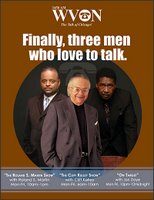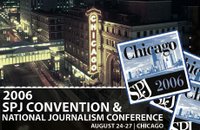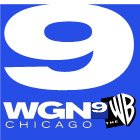Riding the "L"

I guess I got the "authentic" Chicago experience last night as I and eight other colleagues attending the convention caught Chicago's famous elevated subway train, the "L," back to our hotel.
We went to Chicago's southside for dinner at the Negro League Cafe. The soul food (fried chicken, yams, green beans, mac 'and'cheese) was good even though the restaurant was loud and it was hard to have a conversation.
But, the best part of the trip for me was the ride back. Waiting for the train with a bunch of the editors and professor types who were along for the meal, I got a chance to chat and experience what it's like for the million-plus folks who use Chicago's transit system every day.
According to its web site, the Chicago Transit Authority (including the trains and buses) is the second largest in the nation and one of the few that serves two airports-- Midway Airport and O'Hare.
For many of us tourists, just getting a ticket was an experience. The station attendant noticed this large group of folks who had no idea of where we were going or what we were doing. She helped us buy our tickets and gave us transit maps.
All of a sudden the "L" is not just something I see on re-runs of ER, the hit NBC medical drama.
I've ridden the Chicago rail once before (back in 2000 when I was here for a seminar at Northwestern and wanted to go to a White Sox game).
But last night was different. It was different in not only who I was with, but also where I was coming from and the perspective I have on a city of which I'm learning more and more as the week progresses.
It was nice to get outside the convention hotel and experience some of what's REAL CHICAGO.






